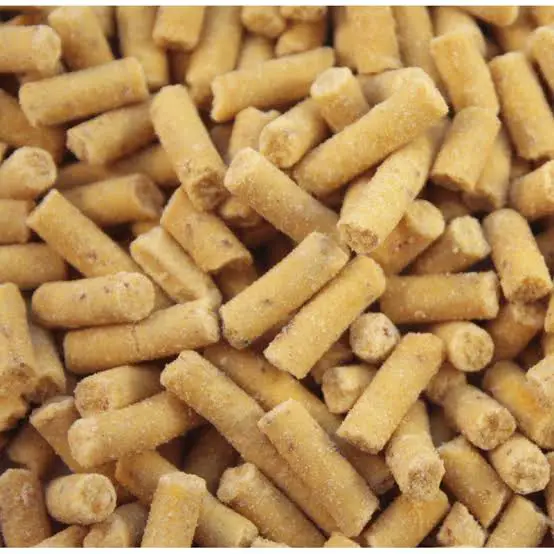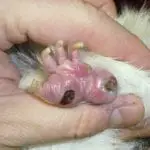A pet bird is something that should not be too difficult to take care of once you know what you should be doing in relation to its needs as an animal and as a household companion. Giving your bird a good home is essential as you need to provide it with a habitat that is perfect for its kind and species. This includes making your home safe while also making sure that its cage is secured, large, and well-built enough. Another thing that a pet bird needs is attention and personal touch on your part because a lot of different species of birds actually love socializing and playing with people.
However, what is arguably the most important part of taking care of a pet bird is to give it the nourishing food it requires to stay healthy and happy. Knowing what type of bird food to give your pet and the supplements it needs to have more complete and balanced nutrition is an essential aspect of making your pet bird happy and healthy. That is why you should be knowledgeable enough to know what kind of diet to feed your bird if you want it to thrive under your care.
The basic fundamentals: pellets
When it comes to the fundamentals, you should certainly know that the most important type of food to give to your pet bird are pellets. Bird pellets you can buy in most pet stores are already made to have most of the nutritional needs your bird requires to function well and to stay healthy. Depending on the species of pet bird you have, bird pellets usually comprise about 50 to 70 percent of your pet’s overall daily nutritional needs. This is especially true for species of birds that rely mostly on grain than on any other type of food.
As such, it is essential that the majority of the food you feed your pet bird is comprised of store-bought pellets. In some cases, certain birds such as Parakeets require you to mix and match their pellets by also adding seeds together with the pellets you bought in the store. It is also important that you make sure that you choose the right type of pellets. Avoid the brands that contain food dyes or sugars as these can eventually accumulate in your bird’s system and have lasting negative effects in the long run.
Nevertheless, you can never go wrong with a diet that is mostly based on bird pellets. But, as we mentioned, this type of food should only comprise about half to maybe two-thirds of your bird’s daily nutritional needs. That is because bird pellets are not complete on their own and do not contain vitamins and minerals that can provide the well-rounded nourishment your pet bird needs to stay healthy on a long-term basis. As such, it is more than important to make sure that you supplement your pet bird’s pellet-based diet.
Seeds for the seed-eating birds

Plenty of birds naturally eat seeds in the wild. That is why it is a must for you to provide such birds with seeds together with a diet that is comprised of the usual bird pellets. In some cases, pet owners combine a mix that is comprised of 60% bird pellets and 40% bird seeds. This is best for birds that prefer to eat seeds such as Parakeets.
However, there are a lot of things you need to consider when feeding your bird with seeds. For one, the seeds that birds find and eat in the wild are usually more nutritious and has more protein and vitamin contents than the store-bought bird seeds we provide them in captivity. Moreover, because our pet birds no longer need to forage for seeds, they use less energy and should be given a smaller amount of seeds to make sure they do not get overweight. The bad side in this is that feeding your bird with smaller quantities of seeds means that it won’t get the necessary vitamins and nutrients it requires.
Of course, you can also expect the bird to try to pick out the seeds it loves when you are providing it with a mixed batch of seeds. What this means is that your bird will only be limiting itself to certain types of seeds that do not necessarily contain all of the vitamins and minerals it requires. So, in that regard, you should never rely on a diet that is comprised only of seeds. There is still a need for you to mix and match and supplement its diet.
Vegetables to supplement the diet

Pellets and seeds do not contain all of the necessary vitamins and minerals required by your pet birds. That is why it is suggested that either pellets and seeds should comprise a maximum of only 70% of your pet’s daily calories. The rest of your bird’s diet should be supplemented with different types of food that contain essential nutrients that can completely nourish your pet.
In that regard, vegetables are great for whenever you want to supplement the bird’s diet with essential vitamins. A lot of birds in the wild eat a wide variety of vegetables that are safe for them. In that regard, it is perfectly fine to feed your pet bird with fresh and clean vegetables that you personally picked out for their high vitamin content. You may want to give them dark leafy greens, cauliflower, and carrots.
It is also worth noting that pellets, seeds, and leafy vegetables do not contain a lot of protein. That is why you might want to supplement the bird’s diet with protein-rich vegetables such as beans and maybe even nuts. Beans are excellent sources of plant-based protein and are also rich in fiber. Meanwhile, try not to feed your bird with a lot of nuts because these are high in fat. Nuts are good on a case to case basis but should be unsalted.
In any case, vegetables should comprise about 10 to 20 percent of your bird’s calorie intake. It is suggested that you only feed your birds with vegetables every other day as such pets are not always willing to eat vegetables if you give them on a daily basis.
Fruits to keep your bird happy and glowing

Fruits, like vegetables, contain a lot of essential vitamins and nutrients that your birds probably won’t be able to get from vegetables. In that case, you should also give your birds some fruits from time to time but should never be more than five percent of their calorie intake. Fruits must be given maybe once or twice a week because these tend to be quite high in sugar. As such, fruits can be used as special treats.
You should carefully pick out the fruits you should give to your pet birds because there are certain fruits that are toxic to them. Avocado is especially toxic for any kind of bird and should be avoided at all times. In that case, stick to fruits such as apples, bananas, cantaloupe, and mangoes.
Specially formulated diets

Depending on what species of pet bird you have, there are store-bought formulated foods that are supposed to have all of the essential vitamins and nutrients of that certain species. Most of these special formulas are made from a combination of pellets, seeds, vegetables, and fruits and are made to look like entire nuggets so that the bird won’t be able to pick out the food it wants to eat. However, what should be noted here is that these formulated foods were made for specific types of pet birds. That means that they only fit certain species of birds because of how their macronutrients are fit for only such species of birds. In your bird’s case, if its nutritional requirements do not fit the ones that these specially formulated types of diet provide, it might certainly lead to malnutrition or even to obesity.

